MasterClass|Aleksandr Sokurov: Film Is Like an "Innocent Boy"
Following the dialogue between Jia Zhangke and Thai director Apichatpong Weerasethakul, on June 17, the 24th Shanghai International Film Festival MasterClass welcomed another two famous masters: contemporary Russian national treasure directors Aleksandr Sokurov and Italian filmmaker Marco Müller.
Aleksandr Sokurov was born in 1951. His first feature film "The Lonely Voice of Man" won the Bronze Leopard Award at the 40th Locarno International Film Festival; "Russian Ark" was shot surprisingly to the end in 96 minutes without cuts and was shortlisted for the main competition unit of the 55th Cannes Film Festival; "Faust" won the Golden Lion Award at the 68th Venice International Film Festival. His works have a strong personal style. He pursues the richness of film language and is good at expressing philosophical thinking on grand topics such as life, art, and history through unique image aesthetics.
Marco Müller, Italian film producer, film critic, and film historian, was born in Rome, Italy in 1953. Marco Muller started his career in film festival planning in 1978, has served as the chairman of several international film festivals. He has directed and written many documentaries about the history of world cinema, published many books on this topic, and has been writing for professional magazines and film media for a long time.
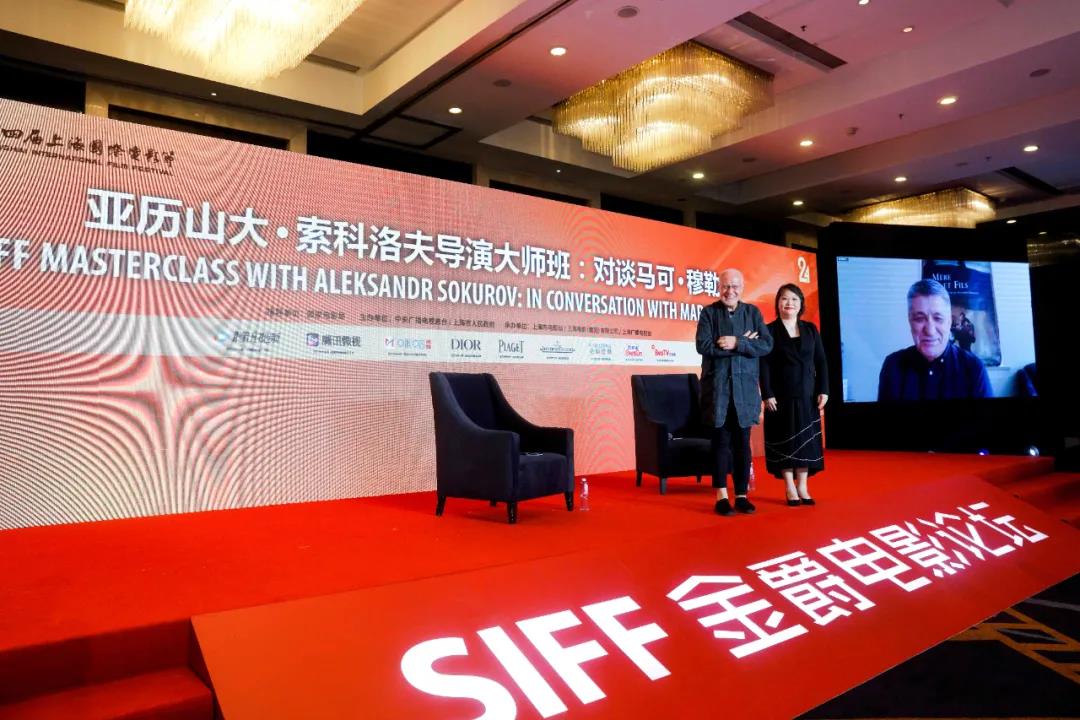
The friendship between two film masters
One of the reasons why the Shanghai International Film Festival invited Aleksandr Sokurov and Marco Müller for a dialogue is that the two well-known filmmakers have been close friends for many years. Marco Muller recalled that when he was the artistic director of the Pesaro Film Festival in Italy in the early 1980s, he had watched Sokurov’s short film "Altovaya sonata. Dmitriy Shostakovich" and another film, and decided immediately invite him to bring his work to the world premiere at the Pesaro Film Festival in 1984. After learning that Sokurov planned to shoot a feature film, Mueller also told several film colleagues that they must pay attention to this young director, who will surely bring surprises to the film industry. Sure enough, Sokurov 's first feature film "The Lonely Voice of Man" won the Bronze Leopard at the 40th Locarno International Film Festival.
Since then, Müller has introduced Aleksandr Sokurov's works to many international film festivals, and has served as the producer of Sokurov 's works "Молох" and "Солнце". Sokurov said that "Молох" and "Солнце" are historical themes of big investment and big production. "There are Russian investments in these two films, but the other investments were raised by Mr. Marco. During the shooting process, we always make decisions together and implement different plans together. Of course, Mr. Marco also knows that cooperating with me will face a lot of complexity, but we have no doubt that through our efforts, these films will be successful. For this cooperation, the most important thing is trust."
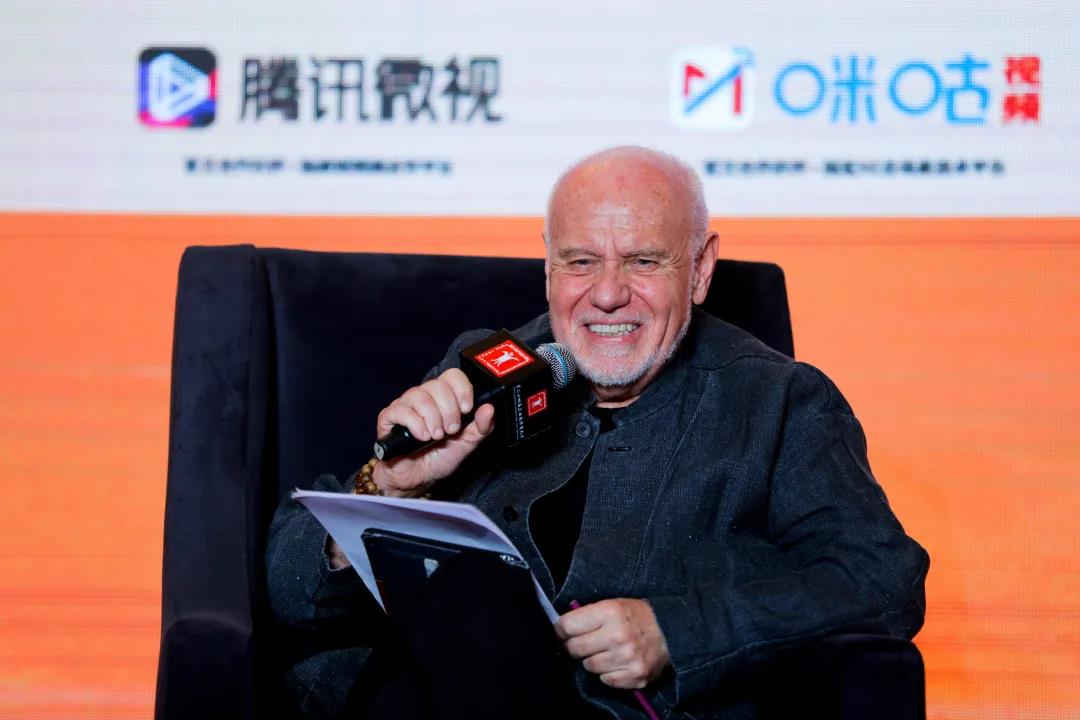
Sokurov specifically mentioned that through the cooperation of the two films, he truly felt Müller's dedication and professionalism. "He is a very outstanding film artist, and being able to work with him is a gift to me. He has provided me with a lot of valuable experience from a professional perspective."
During the online dialogue at the MasterClass of the Shanghai International Film Festival, Sokurov also specifically quoted a Chinese proverb to describe the friendship between himself and Müller. "I personally feel that we have known each other for a lifetime. I also feel that the two of us are like brothers. He is the elder brother and I am the younger brother. I would like to quote a Chinese proverb, 'A distant journey tests the strength of a horse and a long task proves the character of a man.' Our friendship has passed the test of time and hearts."
Look back on the past with kindness and gratitude
Among Sokurov's many works, the "Russian Ark" is a film Chinese fans are most familiar and curious about. Shot to the end in 96 minutes surprisingly without cuts, it makes it difficult for latecomers to surpass this master. Editing is one of the most commonly used methods in the filming process, but Sokurov bluntly said that he did not particularly like to use editing, "As a filmmaker, I have always had such an ideal, to realize our pioneer Tarkovsky’s idea of making a feature film without editing."
Before Sokurov, many Russian filmmakers have made similar attempts, but none of them succeeded. In order to complete the shooting of "Russian Ark", Sokurov formed a transnational photography team. The shooting location was chosen at the famous Hermitage Museum, “because I admire the free imagination that art itself brings to the audience, instead of using editing techniques to force the audience to accept it. It is necessary to allow such a time and place to be able to achieve unity, I need a very large space to be able to display the entire picture."
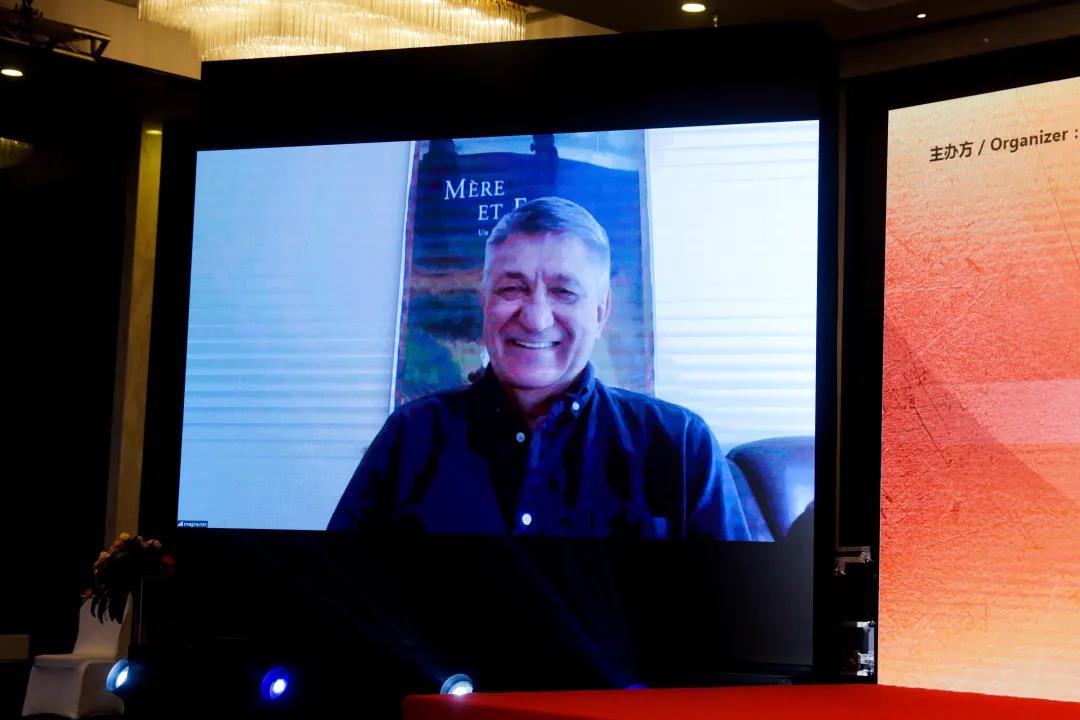
"Russian Ark" tells the story of a 21st-century filmmaker "traveling across time" to an ancient palace in St. Petersburg in the 18th century, meeting a French diplomat from the 19th century, and the two began a wonderful wandering story. They met different historical figures and events here, and had a heated discussion. Sokurov also explained his view of history to the Chinese audience: "We should look back at the past with goodwill. Although it will inevitably carry some feelings of grievance, I hope to convey my gratitude to history."
In Müller's view, all of Sokurov's films are actually explaining his understanding of the relationship between time and space to the audience. Sokolov agrees with this. He believes that the time and space shown by film art is a unified unity, which blurs the boundaries between time and space. "Throughout the history and art history of China, then we can find history and art history both emphasize the unity of time and space. Maybe this is my personal view, but I always think so: I cannot remove the time factor from space."
Film is like an innocent boy
From Sokurov's films, it is not difficult for the audience to feel the profound literary and cultural heritage. Müller said with a smile that Sokurov once said that film is "a baby" because film is only a hundred years old, while literature has a history of several thousand years. "I always think that every time he makes a movie, it is a new exploration. He always thinks that film is a baby, and someone needs to take care of it and bring it up. Now I don't know if he still thinks that way?" Sokurov gave an answer that made the fans laugh at the scene. He said that this "baby" has grown up a bit now: "As far as my personal feelings are concerned, sometimes I think that film is an innocent boy. He sometimes may return home and deliberately break the bowls and plates, or destroy the furniture, but he doesn’t know what his purpose is. I personally think that film is at such a stage."
In Sokurov 's view, film is the same as a teenager. The greatest value lies in its energy. From the content point of view, the things that really settle down are relatively weak. "At present, the development of global movies is rapid. Now our annual production of movies is very huge, which has made people feel a sense of rush. And I think, in addition to the pursuit of speed when driving, we still have to be able to slow down and settle down in our lives."
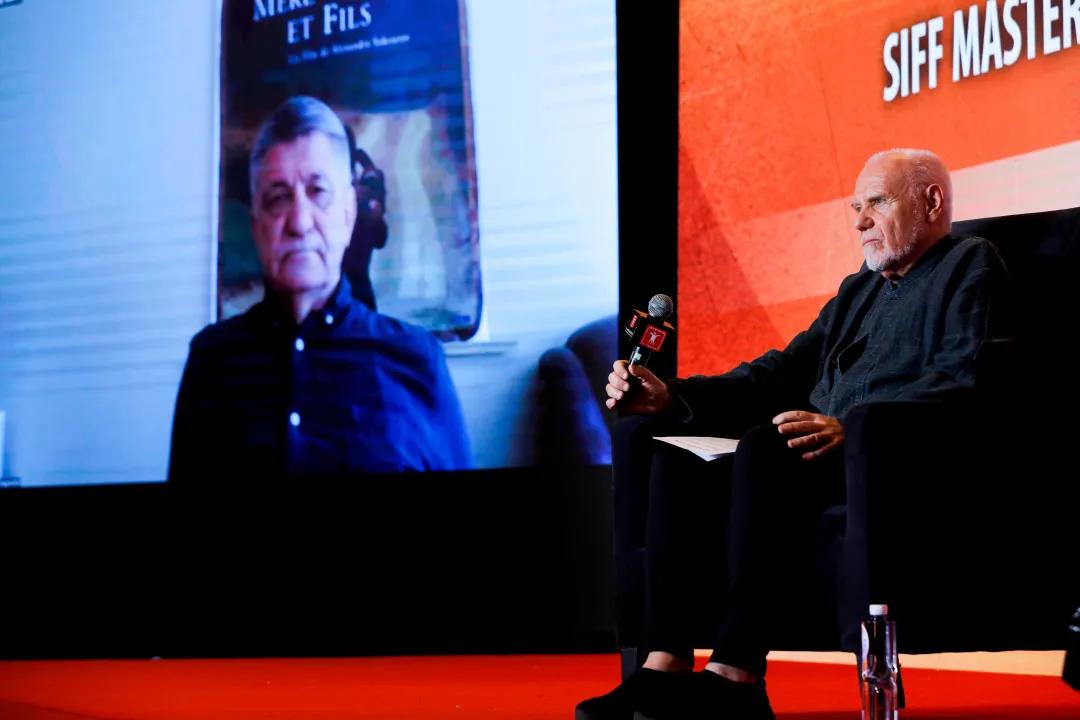
One of Sokurov's ways to allow the film to "sink down" is to adapt from classic literary works. For example, his work "Spasi i sokhrani" is based on "Madame Bovary". In Müller's view, Sokurov tried to recreate through film, "Although he has always felt that literature is more important than film, his adaptation of these works adds a new dimension to literature."
Art shoulders a noble and serious mission
In addition to the richness of film language, Sokurov is also good at expressing his philosophical thinking on life, art, history, material, and other propositions through his works. He uses a very affectionate and poetic way to describe the importance of art to mankind: "Art shoulders a very noble and serious mission. My personal understanding of art is that it can make people face death. But more important than facing and accepting is that we have to use art to tell people how to get out of the gloom of death, and then continue to live."
When asked whether the formation of personal film aesthetics is related to a large number of movie watching or other artistic influences, Sokurov replied frankly that he actually rarely watches movies, and literature, including poetry, and music, have more influence on him. He is optimistic about the importance and vitality of literature. "In principle, we don’t have to worry about the proposition that literature will die, because literature will always exist. Maybe the scale of distribution of literary works will be smaller in the future, but as long as the writer has the will to write and the talent for writing, he has such a sense of mission, and then he will always continue to write."
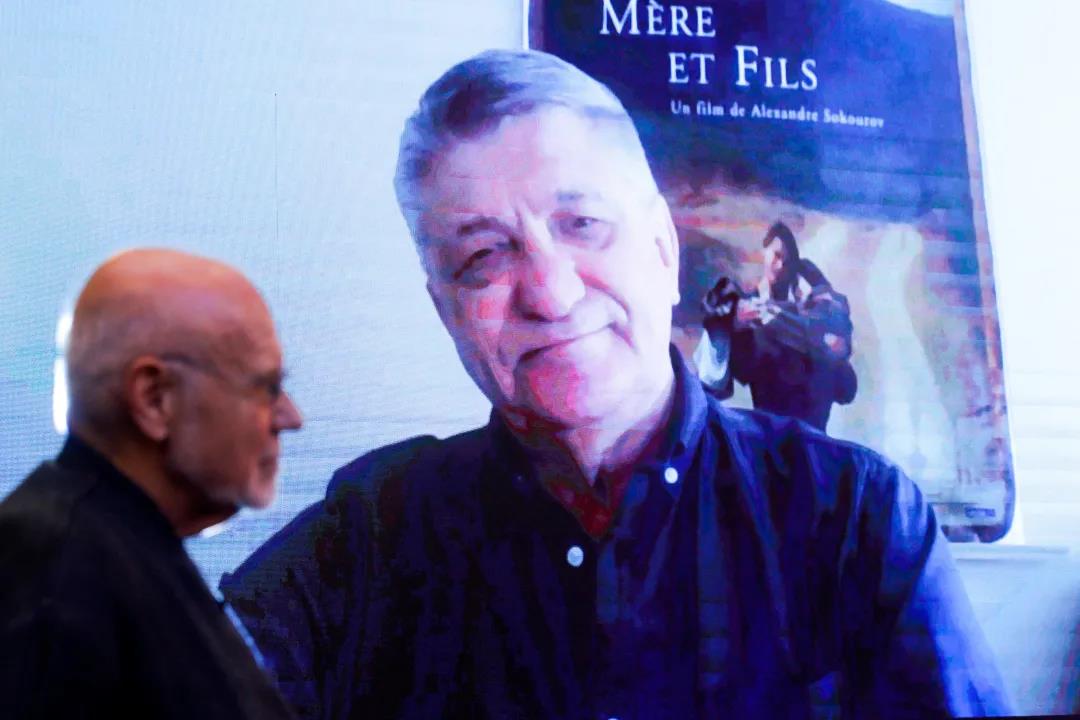
In Sokurov's eyes, movies are just "teenagers", and literature is obviously much more mature. He bluntly said that perhaps the audience for classic literature is declining, but in terms of the relationship between literature and film, literature does not need movies, but movies need literature, and many film workers are tirelessly searching for good story themes in literary works. "I want to tell you the truth, truly great and outstanding classic literary works can indeed give birth to great film works, but on the other hand, film works cannot bring about literary works. No matter how great a director is, he will not become a truly literary scholar, and do not want such a thing to happen."
Müller specifically pointed out that some directors would choose the most difficult literary works to adapt. For example, Sokurov, the only contemporary literary work he adapted was a science fiction novel. Before, even the author himself thought that it was impossible for this novel to be adapted into a movie, but Sokurov made it.

In the interaction with movie fans, Sokurov also mentioned his personal feelings about Chinese movies. "I always think that Chinese people are very good at philosophical thinking, but at present, Chinese films have relatively little exploration and presentation in this area. Most films still emphasize the sense of action. I look forward to seeing more philosophical Chinese films."







